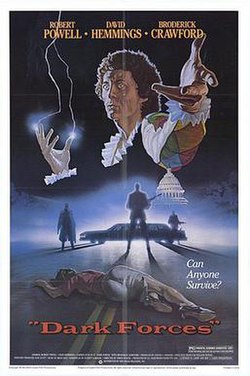Development
Simon Wincer and Everett De Roche had previously collaborated on Snapshot but were not happy with the film since it was made so hurriedly. They decided to make another film, came up with six ideas and eventually chose The Minister's Musician, a modern-day version of the Rasputin story. They did a treatment and Antony I. Ginnane became involved as producer. [4]
Everett de Roche originally did a 400-page first draft in which the central character, Gregory Wolfe, was a priest. When the producers sent the script to the US, they were worried that this would make the film hard to market in Catholic countries so it was changed. The script was given to some American writers to work on but Wincer was not happy with the changes. As de Roche was not available, Wincer went over the script with Russell Hagg although he later said he would have preferred it if de Roche had done the job. [4]
Shooting
It was the first film funded by the newly formed West Australian Film Council. Funding also came from the Australian Film Commission, Greater Union, Ace Theatres of Western Australia and Pact Productions, with the final $50,000 coming from Hemdale. It was the first of several films Ginnane would make with Hemdale. [3]
The movie was shot in late 1979 over six weeks, using Panavision. It was filmed in Western Australia because of the involvement of the West Australian Film Council, which was estimated to save the production $100,000. [6]
The film makes a great effort to disguise the fact it is set in Australia, including dubbing Alan Cassel's voice into an American accent and referring to the American political system. This was controversial at the time because it was made with money from Australian taxpayers. [7]
